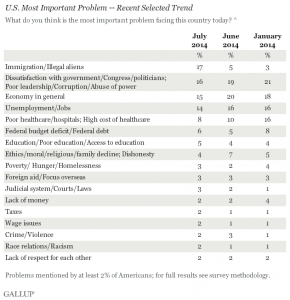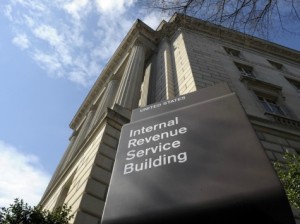by | ARTICLES, CONSTITUTION, FREEDOM, GOVERNMENT, OBAMA, POLITICS

The Washington Post reports that a vote to sue President Obama for overreach of powers passed in the House. No Democrats supported the measure as well as 5 Republicans who also voted no.
Here’s where the mess begins. Most Americans are unaware of how the government actually works. Here’s all the nuances pertaining to Congressional and Executive power.
The Legislative branch, Congress, has the power to pass laws.
The Constitution does not grant specific permission for the Executive branch to issue executive orders.
Presidents have used Executive Orders to assist the officers of the Executive Branch (federal agencies) to carry out their duties.
In a court case in 1952, Youngstown Sheet & Tube Co. v. Sawyer, 343 US 579 the Supreme Court ruled that an Executive Order issued by President Truman, which placed all steel mills in the country under federal authority, was “not valid because it attempted to make law, rather than clarify or act to further a law put forth by the Congress or the Constitution”.
And more:
“The Youngstown decision was critical because it established a standard for the exercise of executive power. In his concurring opinion, Justice Robert H. Jackson described three different situations and three corresponding levels of presidential authority:
The president acts with the most authority when he has the “express or implied” consent of Congress
The president has uncertain authority in situations where Congress has not imposed its authority — either by inaction or indifference — and the president takes advantage of this “zone of twilight” to make an executive decision
The president acts with the least authority when he issues an executive order that is “incompatible” with the expressed or implied will of Congress. Such an act, wrote Justice Jackson, threatens the “equilibrium established by our Constitutional system” [source: Contrubis]”
Executive Orders are not meant to create new laws. Nevertheless, Presidents have, in recent years, pushed the envelope in this matter, using “the executive order as an increasingly powerful political weapon, pushing through programs and regulations — often controversial in nature — without Congressional or judicial oversight [source: Savage]. Executive orders can be overruled by the courts or nullified by legislators after the fact, but until then they carry the full weight of federal and state law [source: Contrubis]”
Obama’s response to the lawsuit vote was this:
“They’re going to sue me for taking executive actions to help people. So they’re mad I’m doing my job. And by the way, I’ve told them I’d be happy to do it with you. The only reason I’m doing it on my own is because you’re [Congress] not doing anything,”
One could argue that Obama’s response magnifies the problem. Obama’s job is not to take “executive actions to help people”. His job, per the Constitution, is to “take care that the laws be faithfully executed”. If Congress isn’t doing anything, that doesn’t mean the power to make laws, the Legislative Branch, is abrogated to the Executive Branch.
If Congress does not create and pass a particular law, it is because the people don’t will it. That is a free expression of Congress’s Constitutional power.
When the President says, “I have to act because Congress does not”, it can be argued that he violates the will of the people with a gross overreach of Executive authority.
Legal scholars have weighed in, suggesting that if Congress acts as one body with this lawsuit — in this case, the House passing the measure to sue — they will have decent Congressional standing from a legal perspective. Here’s more on how that works
Because this really has not been done before, it will likely take a long time to settle the matter. Stay tuned.
by | ARTICLES, BLOG, BUSINESS, FREEDOM, GOVERNMENT, OBAMA, OBAMACARE, POLITICS, TAXES

Reason does a good job (un)covering some clips from 2012, which feature the Chief Architect for Obamacare, Jonathan Gruber. They come at an awkward time just as a Circuit Court judge panel ruled that Obamacare was limited to only providing subsidies in state exchanges, not federal, per the text of the law. The government unsuccessfully argued that everyone meant both federal and state exchanges, and the text was akin to a typo.
Back to the clips and the article. Apparently, in 2012, Jonathan Gruber described precisely the opposite of the government’s recent argument — that Obamacare was limited to state run exchanges and the threat was that, if states did not set up exchanges, the residents of those states would lose out on millions and billions in tax subsidies. Oops.
After being presented with the video, Gruber denied that position and suggested the bill really just contained a typo. And then, a second video was found, also from 2012, which Gruber again argues the same point — that Obamacare only meant to have state-run exchanges. Remember, Gruber was the “chief architect of Obamacare”. Oops again.
The government did not anticipate that a majority of governors would reject the carrot of tax subsidies dangled in front of them when presented implementing Obamacare in their states. They simply did not comprehend that most states would find Obamacare too expensive or too bureaucratic. That is why the bill never said “federal exchanges”. The allure of tons of tax subsides was supposed to woo all the governors to be enticed by this poorly-crafted-bill-that-was-rammed-through-Congress.
When the embarrassment emerged that only a handful of states chose to participate, they scrambled to create federal exchanges, even though that was never intended in the first place. Now the courts have to fight it out. Now we have courts who are split between the language and the spirit of the law.
That is why this unearthing of video footage of the handpicked Obamacare crafter is particularly awkward for the government’s defense.
From the Reason article: (also worthwhile to go there and check out the videos)
“Obamacare’s defenders have responded by saying that this is obviously ridiculous. It doesn’t make any sense in the larger context of the law, and what’s more, no one who supported the law or voted for it ever talked about this. It’s a theory concocted entirely by the law’s opponents, the health law’s backers argue, and never once mentioned by people who crafted or backed the law.
It’s not. One of the law’s architects—at the same time that he was a paid consultant to states deciding whether or not to build their own exchanges—was espousing exactly this interpretation as far back in early 2012, and long before the Halbig suit—the one that was decided this week against the administration—was filed. (A related suit, Pruitt v. Sebelius, had been filed earlier, but did not challenge tax credits within the federal exchanges until an amended version which was filed in late 2012.) It was also several months before the first publication of the paper by Case Western Law Professor Jonathan Adler and Cato Institute Health Policy Director Michael Cannon which detailed the case against the IRS rule.
Jonathan Gruber, a Massachusetts Institute of Technology economist who helped design the Massachusetts health law that was the model for Obamacare, was a key influence on the creation of the federal health law. He was widely quoted in the media. During the crafting of the law, the Obama administration brought him on for consultation because of his expertise. He was paid almost $400,000 to consult with the administration on the law. And he has claimed to have written part of the legislation, the section dealing with small business tax credits.
After the law passed, in 2011 and throughout 2012, multiple states sought his expertise to help them understand their options regarding the choice to set up their own exchanges. During that period of time, in January of 2012, Gruber told an audience at Noblis, a technical management support organization, that tax credits—the subsidies available for health insurance—were only available in states that set up their own exchanges.
A video of the presentation, posted on YouTube, was unearthed tonight by Ryan Radia at the Competitive Enterprise Institute, a libertarian think tank which has participated in the legal challenge to the IRS rule allowing subsidies in federal exchanges. Here’s what Gruber says.
What’s important to remember politically about this is if you’re a state and you don’t set up an exchange, that means your citizens don’t get their tax credits—but your citizens still pay the taxes that support this bill. So you’re essentially saying [to] your citizens you’re going to pay all the taxes to help all the other states in the country. I hope that that’s a blatant enough political reality that states will get their act together and realize there are billions of dollars at stake here in setting up these exchanges. But, you know, once again the politics can get ugly around this. [emphasis added]
There can be no doubt, based on his record, that Gruber is a supporter of the law. He says so in the presentation. “I’m biased, I’m in favor of this type of law, I won’t hide that,” he says. He also explains early on that his entire presentation is made of “verifiable objective facts.”
And what he says is exactly what challengers to the administration’s implementation of the law have been arguing—that if a state chooses not to establish its own exchange, then residents of those states will not be able to access Obamacare’s health insurance tax credits. He says this in response to a question asking whether the federal government will step in if a state chooses not to build its own exchange. Gruber describes the possibility that states won’t enact their own exchanges as one of the potential “threats” to the law. He says this with confidence and certainty, and at no other point in the presentation does he contradict the statement in question.
In early 2013, Gruber told the liberal magazine Mother Jones that the theory advanced by the challengers in this case was “nutty.” Gruber also signed an amicus brief in defense of the administration and the IRS rule. But judging by the video it is quite clear that in 2012 he accepted the essence of the interpretation advanced by the challengers.
Unless this video is a fraud or there are relevant details missing, there are only two options here: Either Gruber, a key influence on the legislation who wrote part of the law and who consulted with multiple states on setting up their own exchanges, was correct, and the law explicitly limits subsidies to state-run exchanges.
Or he was wrong in a way that perfectly aligns with both the clear text of the legislation and the argument later made by the challengers to the IRS rule allowing susbidies in federal exchanges.
Update: Earlier this week, Gruber was on MNSBC to address the Halbig ruling. He was asked if the language limiting subsidies to state-run exchanges was a typo. His response: “It is unambiguous this is a typo. Literally every single person involved in the crafting of this law has said that it’s a typo, that they had no intention of excluding the federal states.”
Update 2: The Cato Institute’s Michael Cannon, who was instrumental in developing the arguments that laid the groundwork for the legal challenge in Halbig, responds to the video at Forbes:
I don’t mean to overstate the importance of this revelation. Gruber acknowledging this feature of the law is not direct evidence of congressional intent. But Gruber is probably the most influential private citizen/government contractor involved in that legislative process. He was in the room with the people who crafted this bill.
Update 3: Gruber says the statement in the video was “a mistake.” Jonathan Cohn of The New Republic got a response from Gruber this morning. Here are a few snippets:
I honestly don’t remember why I said that. I was speaking off-the-cuff. It was just a mistake. People make mistakes. Congress made a mistake drafting the law and I made a mistake talking about it.
During this era, at this time, the federal government was trying to encourage as many states as possible to set up their exchanges. …
At this time, there was also substantial uncertainty about whether the federal backstop would be ready on time for 2014. I might have been thinking that if the federal backstop wasn’t ready by 2014, and states hadn’t set up their own exchange, there was a risk that citizens couldn’t get the tax credits right away. …
But there was never any intention to literally withhold money, to withhold tax credits, from the states that didn’t take that step. That’s clear in the intent of the law and if you talk to anybody who worked on the law. My subsequent statement was just a speak-o—you know, like a typo.
Update 4: Gruber appears to have made a second “speak-o.” In a separate speech, he spoke of the “threat” posed by states declining to build their own exchanges. And he once again explicitly ties the creation of state-based exchanges to the law’s tax credits (its subsidies for private health insurance insurance).
On January 10, 2012, in a speech at the Jewish Community Center of San Francisco, Gruber said that “by not setting up an exchange, the politicians of a state are costing state residents hundreds and millions and billions of dollars….That is really the ultimate threat, is, will people understand that, gee, if your governor doesn’t set up an exchange, you’re losing hundreds of millions of dollars of tax credits to be delivered to your citizens.”
by | ARTICLES, BLOG, BUSINESS, ECONOMY, GOVERNMENT, OBAMA, POLITICS, TAXES

Obama has called “for an end to a corporate loophole that allows companies to avoid federal taxes by shifting their tax domiciles overseas in deals known as ‘inversions’.” Such as statement shows the utter ineptitude that Obama has for understanding a) what inversion actually is and b) how his policies are the cause.
Inversion is not a “corporate loophole” and companies who do so are not “avoiding federal taxes”.
Currently, only the United States taxes American companies on foreign profits as well as domestic. No other major country does this. This policy is non-competitive, stupid, and a major reason why inversion occurs. An American company is being taxed in two jurisdictions.
For instance, if Honda is making cars in the United States, it pays the same taxes as General Motors. But if an American company is in Japan, it has to pay both Japanese taxes and American taxes and therefore has to make an even larger profit just to stay competitive and survive.
If foreign sales grow substantially, a company will find itself paying increased U.S. taxes because it is still incorporated in this country and we tax both foreign and domestic profits. Eventually, a U.S. company may find by moving its incorporation to a different country, it can cease paying U.S. taxes on income that is not generated in the United States — the way every other advanced nation, except for the United States, operates. That extra savings in taxes can be reinvested in the company itself.
Couple this ridiculous tax law with the fact that we also have the highest corporate tax rate in the world as well as a substantial number of stifling regulatory agencies, and it’s small wonder why some companies choose to move abroad eventually.
To call this a “corporate loophole” is exceedingly disingenuous. For some companies to survive, they may have no choice but to move its legal status elsewhere. American companies are in business to make and do things, not to comply with exhaustive tax policy and burdensome bureaucracy. However, the business climate in this country is difficult and to call a company a “deserter” or “unpatriotic” casts the blame squarely in the wrong place — which is a government that over-taxes and over-regulates. That is the problem, and inversion is a symptom of an anti-business environment.
To insinuate that companies who go through the process of inversion are “avoiding federal taxes” entirely omits the reality that this country is the only country who taxes companies both on domestic and foreign profits. Just because we can tax them this way, doesn’t mean we ought to. Reforming the tax code is a better solution.
“Needing to reform inversion” is merely creating another tax grab for Obama — masquerading as fighting against “bad corporations” in order to pander to the rhetoric of the left. The government continues to run chronic deficits and is considering this measure in order to fleece businesses for extra tax revenue. They already face oppressive taxation and burdensome regulation. Attacking them for doing what they might need to do, in order to stay in business, is repugnant.
by | ARTICLES, ELECTIONS, FREEDOM, GOVERNMENT, OBAMA, POLITICS, TAXES

One month ago (in June), the topic of immigration was at 5%.
Today? It’s 17%. According to a Gallup poll released a few days ago, immigration has surged to the top of the list as “the Most Important U.S. Problem”. This replaces “dissatisfaction with government” (16%).
Two other tidbits to glean from this poll: (1) the issue is higher among Republicans (23%) than Democrats (11%); and (2) older Americans (over 50) are more likely than younger Americans (under 50) to cite immigration as the top issue.
So, while this poll shows us what Americans are now talking about, even more importantly is what they aren’t talking about anymore — major scandals such as those involving the IRS, the VA, and even the situation in Iraq, among others (most of those can probably be filed under “dissatisfaction with government”).
The IRS and VA scandals are particularly scathing to the administration. Is it any wonder why, at the very time when the heat began to turn up on these two issues, the immigration surge began. Those very demographics — Republicans and older Americans — who are most likely to be incensed at the IRS and VA scandals are now the ones even more incensed at the immigration issue…so that they are no longer focused on the IRS and VA.
The poll concluded: “the fact that the issue is of particular concern to Republicans and older Americans — both groups that Republicans need to turn out in force in the midterms — could be critical to the outcome.”
The poll is likely correct, but in a different sort of way. Even the IRS scandal and the VA scandal made many Democrats squirm as well as Republicans, so there was no way to pit one group against the other for political gain. With the immigration surge, however, it is a bit more partisan, and creates a better opportunity for the Democrats to target the Republicans on this issue (and vice versa) — precisely in time for election season.
In fact, the Washington Times noted last week,
“Perhaps one particular decision by the White House highlights how concerned the administration is about public reaction: As of now, not a single illegal-alien detainee seems to have been sent to Louisiana or Arkansas, the states bordering Texas that are closest to the site of the border deluge. This is no accident. Those two states have Democratic senators up for re-election who are vulnerable enough to lose, but who might still be able to prevail. The White House appears to have decided not to send any illegals there to avoid the potential for political damage.”
The White House is keenly aware of not “letting this crisis go to waste”. They have carefully chosen not to send immigrants to states with vulnerable Democrat elections so that they will avoid arousing the Republican/elderly electorate on Election Day.
On the other hand, those who are concerned about the immigrant surge are already being painted as “anti-children”, “heartless”, etc. Those sentiments are certain to be repeated during the election cycle.
At least one group thinks that this crisis is contrived. The National Association of Former Border Patrol Officers (NAFBPO), which issued a statement in early June, essentially stating that surge of immigrants, including minors, crossing our border “is not a humanitarian crisis. It is a predictable, orchestrated and contrived assault on the compassionate side of Americans by her political leaders that knowingly puts minor illegal alien children at risk for purely political purposes.”
The immigration surge is less about immigration than it is about deflection. If the Obama Administration can have a large part of the electorate — especially Republicans and elderly — refocus on something big other than the IRS scandal, VA scandal, and more, then they can be out of scrutiny on those particularly damning issues for at least the time being.

by | ARTICLES, BLOG, CONSTITUTION, ELECTIONS, FREEDOM, GOVERNMENT, OBAMA, OBAMACARE, POLITICS, TAXES

A federal appeals panel handed down a ruling this morning that could be problematic for Obamacare. As just reported, “A judicial panel in a 2-1 ruling said such subsidies can be granted only to those people who bought insurance in an Obamacare exchange run by an individual state or the District of Columbia — not on the federally run exchange HealthCare.gov.” You can read the entire appeal here.
This is the eagerly awaited Halbig case. The crux of the case lies in the wording of the actual bill of Obamacare, which specifically lists state exchanges as a source of subsidies.
There is no mention of federal exchanges in Obamacare. This was created merely by an IRS rule authorizing the subsidies in federal exchanges. If upheld, it could affect millions of Obamacare enrollees. The article notes,
“the ruling could lead many, if not most of those subsidized customers to abandon their health plans sold on HealthCare.gov because they no longer would find them affordable without the often-lucrative tax credits. And if that coverage then is not affordable for them as defined by the Obamacare law, those people will no longer be bound by the law’s mandate to have health insurance by this year or pay a fine next year.
If there were to be a large exodus of subsidized customers from the HealthCare.gov plans, it would in turn likely lead to much higher premium rates for non-subsidized people who would remain in those plans, who are apt as a group to be in worse health than all original enrollees.”
The government will most certainly file a full review in U.S. Court of Appeals for the District of Columbia Circuit.
Regardless of the eventual outcome of the case here’s the salient point to take away.
When you look at the plain wording of the actual bill, it really doesn’t make any sense (e.g. common sense). Here we have a perfect example of the Democrats trying — and ultimately succeeding — to push something through without looking at it or even carefully thinking through the implications of the words and provisions. That is not a “glitch”. That is disdain.
Obamacare was drafted badly, and they couldn’t even get it corrected the proper way because of the crookedness by which it was passed. Now we have a stupid mistake that the judiciary is being asked to fix. And that’s the problem.
What the government is asking the courts to do is to ignore the literal wording of the law. On the other hand, if the literal wording is indeed upheld, the immediate effect of a reversal is going to be extremely terrible.
Think about it: the IRS will have to go after people for refunds of tax credits. That will be a messy and slow and heated endeavor. Many people, especially poor people, are going to argue that they wouldn’t have used Obamacare insurance if it wasn’t for the subsidies. From a tactical perspective, such a scenario is not necessarily good for conservative or libertarians either, because it sets up the sound-byte narratives that conservatives and libertarians are “taking away your health care”, “they hate the poor, etc”, which will most certainly be used ad nauseam by the Democrats. Is it worth it?
My heart of hearts wants literal side to win, but at the same time, I’m not entirely convinced that its the best thing in the long run. Yet, if the government wins, it reinforces the precedent we’ve been seeing that it is okay to ignore the actual wording of the law passed by Congress. That most certainly is not okay.
This case perfectly highlights the stupidity and utter contempt for which the Democrats have of procedure and law, as seen in the problems with the entire Obamacare bill.
UPDATE: Allahpundit reminds us that the 4th Circuit upheld the Obamacare subsidies for federal exchange consumers.
So…which is it? Is it the intent of the law or the text of the law? Stay tuned on this one.
by | ARTICLES, BLOG, CONSTITUTION, FREEDOM, GOVERNMENT, OBAMA, POLITICS, TAXES

First Lois Lerner’s home computer crashed. Then it was seven IRS employees, many who had important positions. You can read about them here. Now, according to the Daily Caller, the IRS Deputy Associate Chief Counsel Thomas Kane reported in congressional testimony that even more IRS officials succumbed to computer crashes. He estimated that the number was no more than 20. Kane also stated that the IRS does not know yet if those lost emails are backed up anywhere.
Last month in June, the IRS commissioner John Koskinen testified that he did not know of any way to get missing IRS emails back, which was in contrast to his March testimony that IRS employee emails are saved on servers. In that interim time between the two testimonies, it was learned that in September of 2011, the IRS canceled its contract with an email archiving firm after 6 years.
The names of the newest IRS crash victims include: “David Fish, who routinely corresponded with Lois Lerner, as well as Lerner subordinate Andy Megosh, Lerner’s technical adviser Justin Lowe, and Cincinnati-based agent Kimberly Kitchens”.
The IRS computer crashes happened in both Washington DC and Cincinnati. Additionally, it appears that the IRS violated the The Federal Records Act, which required IRS employees to save and also print out all of their emails related to IRS business — in the unlucky event a hard drive crashed or was deleted in an improper data recycling procedure.
UPDATE: Even as the IRS scandal continues to worsen, the IRS brazenly put out a new solicitation on Monday for “media destruction” services to destroy at least another 3,200 hard drives.
You can’t make this up.
by | ARTICLES, ELECTIONS, FREEDOM, GOVERNMENT, HYPOCRISY, OBAMA, POLITICS

Charles Krauthammer’s Op-Ed in the Washington Post this past week was a succinct and cogent piece of writing on the Gaza-Israeli conflict. Where many news organizations have been wont to blame Israel, Krauthammer calls it like it is.
This piece was so excellent, it is worth it to reprint in its entirety below.
MORAL CLARITY IN GAZA
Israel accepts an Egyptian-proposed Gaza cease-fire; Hamas keeps firing. Hamas deliberately aims rockets at civilians; Israel painstakingly tries to avoid them, actually telephoning civilians in the area and dropping warning charges, so-called roof knocking.
“Here’s the difference between us,” explains the Israeli prime minister. “We’re using missile defense to protect our civilians, and they’re using their civilians to protect their missiles.”
Rarely does international politics present a moment of such moral clarity. Yet we routinely hear this Israel-Gaza fighting described as a morally equivalent “cycle of violence.” This is absurd. What possible interest can Israel have in cross-border fighting? Everyone knows Hamas set off this mini-war. And everyone knows the proudly self-declared raison d’etre of Hamas: the eradication of Israel and its Jews.
Apologists for Hamas attribute the blood lust to the Israeli occupation and blockade. Occupation? Does no one remember anything? It was less than 10 years ago that worldwide television showed the Israeli army pulling die-hard settlers off synagogue roofs in Gaza as Israel uprooted its settlements, expelled its citizens, withdrew its military and turned every inch of Gaza over to the Palestinians. There was not a soldier, not a settler, not a single Israeli left in Gaza.
And there was no blockade. On the contrary. Israel wanted this new Palestinian state to succeed. To help the Gaza economy, Israel gave the Palestinians its 3,000 greenhouses that had produced fruit and flowers for export. It opened border crossings and encouraged commerce.
The Israel Defense Forces released a video on Thursday that they claim shows a tunnel that Hamas militants planned to use to attack Israel.
The whole idea was to establish the model for two states living peacefully and productively side by side. No one seems to remember that, simultaneous with the Gaza withdrawal, Israel dismantled four smaller settlements in the northern West Bank as a clear signal of Israel’s desire to leave the West Bank as well and thus achieve an amicable two-state solution.
This is not ancient history. This was nine years ago.
And how did the Gaza Palestinians react to being granted by the Israelis what no previous ruler, neither Egyptian, nor British, nor Turkish, had ever given them — an independent territory? First, they demolished the greenhouses. Then they elected Hamas. Then, instead of building a state with its attendant political and economic institutions, they spent the better part of a decade turning Gaza into a massive military base, brimming with terror weapons, to make ceaseless war on Israel.
Where are the roads and rail, the industry and infrastructure of the new Palestinian state? Nowhere. Instead, they built mile upon mile of underground tunnels to hide their weapons and, when the going gets tough, their military commanders. They spent millions importing and producing rockets, launchers, mortars, small arms, even drones. They deliberately placed them in schools, hospitals, mosques and private homes to better expose their own civilians. (Just Thursday, the U.N. announced that it found 20 rockets in a Gaza school.) And from which they fire rockets at Jerusalem and Tel Aviv.
Why? The rockets can’t even inflict serious damage, being almost uniformly intercepted by Israel’s Iron Dome anti-missile system. Even West Bank leader Mahmoud Abbas has asked: “What are you trying to achieve by sending rockets?”
It makes no sense. Unless you understand, as Tuesday’s Post editorial explained, that the whole point is to draw Israeli counterfire.
This produces dead Palestinians for international television. Which is why Hamas perversely urges its own people not to seek safety when Israel drops leaflets warning of an imminent attack.
To deliberately wage war so that your own people can be telegenically killed is indeed moral and tactical insanity. But it rests on a very rational premise: Given the Orwellian state of the world’s treatment of Israel (see: the U.N.’s grotesque Human Rights Council), fueled by a mix of classic anti-Semitism, near-total historical ignorance and reflexive sympathy for the ostensible Third World underdog, these eruptions featuring Palestinian casualties ultimately undermine support for Israel’s legitimacy and right to self-defense.
In a world of such Kafkaesque ethical inversions, the depravity of Hamas begins to make sense. This is a world in which the Munich massacre is a movie and the murder of Klinghoffer is an opera — both deeply sympathetic to the killers. This is a world in which the U.N. ignores humanity’s worst war criminals while incessantly condemning Israel, a state warred upon for 66 years that nonetheless goes to extraordinary lengths to avoid harming the very innocents its enemies use as shields.
It’s to the Israelis’ credit that amid all this madness they haven’t lost their moral scruples. Or their nerve. Those outside the region have the minimum obligation, therefore, to expose the madness and speak the truth. Rarely has it been so blindingly clear.
by | ARTICLES, FREEDOM, GOVERNMENT, OBAMA, QUICKLY NOTED, TAXES

A federal judge authorized two of three tea party complaints against the IRS to move ahead, despite a plea for dismissal from the accusations of discrimination.
“In her ruling Thursday, Judge Susan Dlott allowed two of the tea party groups’ claims — including that the IRS discriminated and retaliated against them based on their views in violation of their free speech rights — to survive to trial”
This will be interesting to watch, and marks several cases now pending against the IRS in court.








